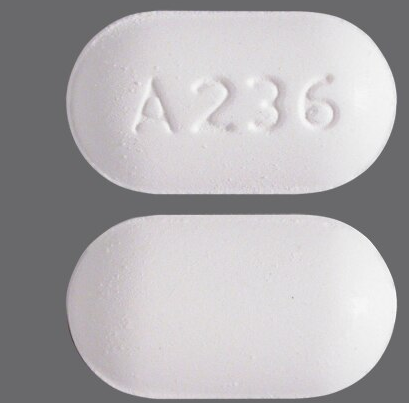Butalbital (Fiorinal(®)), used in the treatment of migraines and muscle pain, is the most commonly encountered barbiturate in impaired driving cases. It has central nervous system (CNS) depressant properties, including sedation, drowsiness, and feelings of intoxication, which can contribute to driving impairment. Twenty-six driving under the influence cases are reviewed including results from field sobriety tests and toxicology testing.
Blood samples were screened using enzyme multiplied immunoassay technique immunoassay, and the presence of butalbital was confirmed and quantified using gas chromatography/mass spectrometry, gas chromatography with flame ionization detection, or gas chromatography nitrogen/phosphorus detection. Butalbital concentrations ranged from 1.0 to 30.2 mg/L, with a mean and median of 16.0 mg/L.
General impairment indicators in these cases included horizontal and vertical nystagmus, lack of convergence, poor motor coordination, and balance and speech problems, which are common to CNS depressant intoxication, similar to that associated with alcohol. These findings indicate the importance of toxicological testing for butalbital in cases where CNS depressants are indicated.

Able Laboratories Inc
Pill Identification: A 236
Drugs Containing Butalbital:
- Bupap
- Butalbital and Acetaminophen
- Phrenilin® Forte
- Phrenilin®
- Cephadyn
Promacet - Sedapap®
- Acetaminophen, Butalbital, and Caffeine
- Anolor 300
- Dolgic® LQ
- Dolgic® Plus
Esgic-Plus™ - Esgic®
- Fioricet®
- Medigesic®
- Repan®
- Zebutal™
- Acetaminophen, Caffeine, Codeine, and Butalbital
- Fioricet® with Codeine
- Aspirin, Caffeine, and Butalbital; Butalbital Compound
- Fiorinal®
- Aspirin, Caffeine, Codeine, and Butalbital; Butalbital Compound and Codeine
- Fiorinal® With Codeine
Butalbital-containing products (such as Fioricet) used for treating migraines can cause:
- Drug-induced headaches
- The need to detoxify
- Withdrawal symptoms
- Increased medical expenses
- Lower quality of life
These effects generally take years to develop. So please stop to take fioricet when it cannot solve your headache problems within six months.
Effects Associated with Butalbital
Butalbital, like other barbiturates, produces a feeling of euphoria that is associated with feeling relaxed, free of stress, and almost as if one is intoxicated on alcohol. This sense of relaxation and euphoria contributes to its ability to treat severe headaches, but also contributes to its potential as a drug of abuse.
Other side effects associated with butalbital include the following:
- Decreases in reaction time, motor coordination, balance, and in the speed and flow of thinking processes
- Feeling dizzy or lightheaded, feelings of lethargy, drowsiness, and a relaxing warm sensation
- Nausea, stomach pain, stomach cramps, and vomiting
- Feeling short of breath due to respiratory suppression
- Rare side effects, such as rash, itching, problems with breathing, problems with swallowing, dry mouth, difficulty swallowing, gas, heartburn, severe lethargy or fatigue, ringing in the years, black tarry stools, and/or leg cramps or leg pain (Call your physician if experiencing these effects.)
- The development of physical dependence and/or a substance use disorder with chronic abuse
Due to its central nervous system depressant effects, butalbital is the most common barbiturate associated with arrests for impaired driving. Operating machinery or driving while taking butalbital is extremely dangerous and akin to driving under the influence of alcohol. Individuals who use butalbital in conjunction with other substances, such as other barbiturates, benzodiazepines, narcotic medications, stimulants, or alcohol, are at risk for serious effects that can potentially be fatal.
Symptoms of an overdose on butalbital include:
- Cognitive symptoms, such as confusion, displaying slurred or slowed speech, issues with judgment, and irrational behavior
- Physical symptoms, such as sluggishness, extremely depressed reflexes, lack of coordination, balance issues, staggering gate, and appearing as if intoxicated
- Physical signs, such as extremely slowed breathing rates, extremely slow heart rate, extremely low temperature, extreme lethargy and sleepiness, and limp muscles
Of course, there is potential for the individual to become unconscious or comatose. Any individual who is suspected of overdosing on butalbital should receive immediate medical attention.

Like all barbiturates, butalbital has a high potential for abuse and for the development of physical dependence. Tolerance to barbiturates like butalbital develops very quickly in individuals who abuse the drug. When tolerance occurs, users will attempt to take higher doses more frequently in an effort to achieve the same results they used to get at lower doses. Some signs that someone is abusing or addicted to butalbital include:
- The person obtains the drug without a prescription, or if they have a prescription, they use the drug more often or in higher doses than specified by the prescription.
- Individuals with prescriptions who engage in doctor shopping to obtain more drugs are most likely abusing the drug.
- People who spend significant amounts of time trying to obtain the drug, using the drug, or recovering from use of the drug are most likely abusing the drug.
- Using butalbital in ways not typically prescribed, such as grinding it up into powder and snorting it, or mixing it with other drugs.
- Individuals who abuse barbiturates like butalbital will often appear drowsy or lethargic or may even appear intoxicated and present with slurred speech, issues with coordination, and decreased mental and physical reaction times.
- People who abuse barbiturates often begin spending significant periods of time alone or with other individuals who are known substance abusers.
- Users may get very defensive or even angry when someone attempts to discuss their use of drugs with them.
- Individuals who abuse barbiturates will often begin to demonstrate issues with attention and with memory.
- Users may display intermittent periods of irritability, restlessness, sensitivity, and/or complaining of feeling sick or having flulike symptoms as a result of the initial withdrawal process associated with not using butalbital.
- Anyone who continues to use butalbital despite experiencing obvious negative issues associated with their drug use, such as issues with work, school, or in their relationships with others, is most likely abusing the drug.
Life free painfree. Powerstrips All Natural pain relief. Learn more 99012202.fgxpress.com or mystripswork.com. For a free sample email me back